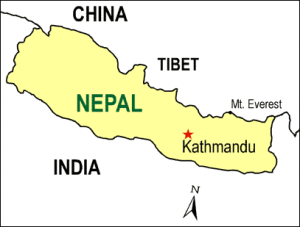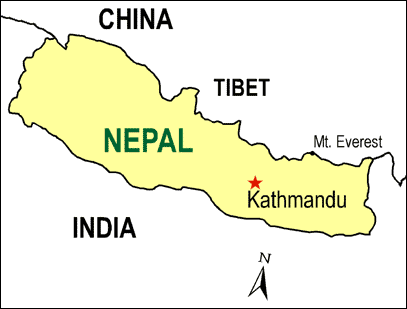China directs Nepal to strengthen restrictions on Tibetans with extra aid
DHARAMSALA, Oct 30: China has announced an additional 20 million yuan in annual developmental aid to Nepal this week while asking the Nepalese government to curb ‘anti-China’ activities on Nepalese soil.
Lobsang Gyaltsen, the Chairman of the so-called Tibet Autonomous Region made the aid announcement during his meeting with Nepalese Prime Minister, Sushil Koirala in Kathmandu on Oct 28. The aid meant for Nepal’s development endeavors will continue for another five years, media reports quoted Dinesh Bhattarai, Nepal’s foreign advisor to the PM as saying.
During his visit Lobsang Gyaltsen, an ethnic Tibetan who was elected to the nominal position of Chairman of TAR last year also asked Nepal to take strong measures to ensure that its soil is not used for “anti-China” activities, apparently referring to Tibetans living in the country, which, according to reports, Kathmandu agreed and reiterated its commitment to one-China policy.
As the age-old relationship between India and Nepal, based on common religious, linguistic and cultural identities, took a plunge after the massacre of Nepal’s royal family in 2001 coupled with Maost insurgency and its dominating influence in Nepal’s domestic politics, China has gradually strengthened its political and economic influence in Nepal, particularly through financial aid to the land locked country that has been struggling to form a stable government.
China has been providing 200 million yuan as annual support to execute various projects and another six million yuan for security equipment, while EXIM Bank of China has been providing 154 million yuan for construction of two transmission lines, 200 million yuan for setting up an Academy for Armed Police Force and 50 million Yuan for 15 northern districts of Nepal.
With the influx of Chinese aid in Nepal, Tibetans residing in the country have witnessed an increase in imposition of restrictions on their basic human rights and harassment from the Nepalese authorities as a result of strong pressure from China.
A 100-page report published in April this year by Human Rights Watch (HRW), a global rights watch dog, explains in detail the prevailing ‘de facto ban on political protests, sharp restrictions on public activities promoting Tibetan culture and religion, and routine abuses by Nepali security forces’.
“These include excessive use of force, arbitrary detention, ill-treatment in detention, threats and intimidation, intrusive surveillance, and arbitrary application of vaguely formulated and overly broad definitions of security offenses”, HRW said in its report titled, “Under China’s Shadow: Mistreatment of Tibetans in Nepal”.
The report also mentions that as a result of massive security presence in Tibet and with increased cooperation between Nepalese and Chinese security forces, China has been able to stem the flow of Tibetan refugees from crossing into Nepal.
“In 2013, fewer than 200 Tibetans were recorded as having fled China, as compared to a pre-2008 annual average of more than 2,000” the report said.
According to latest developments between Nepal and China, Tibetan refugees escaping to Nepal may also face extradition.
Nepal’s Deputy Prime Minister Bamdev Gautum, on his return from a recent visit to China said though Beijing is keen on signing a bilateral investment promotion and protection agreement (BIPPA) with Nepal, it wants to have an extradition treaty along with the BIPPA.




